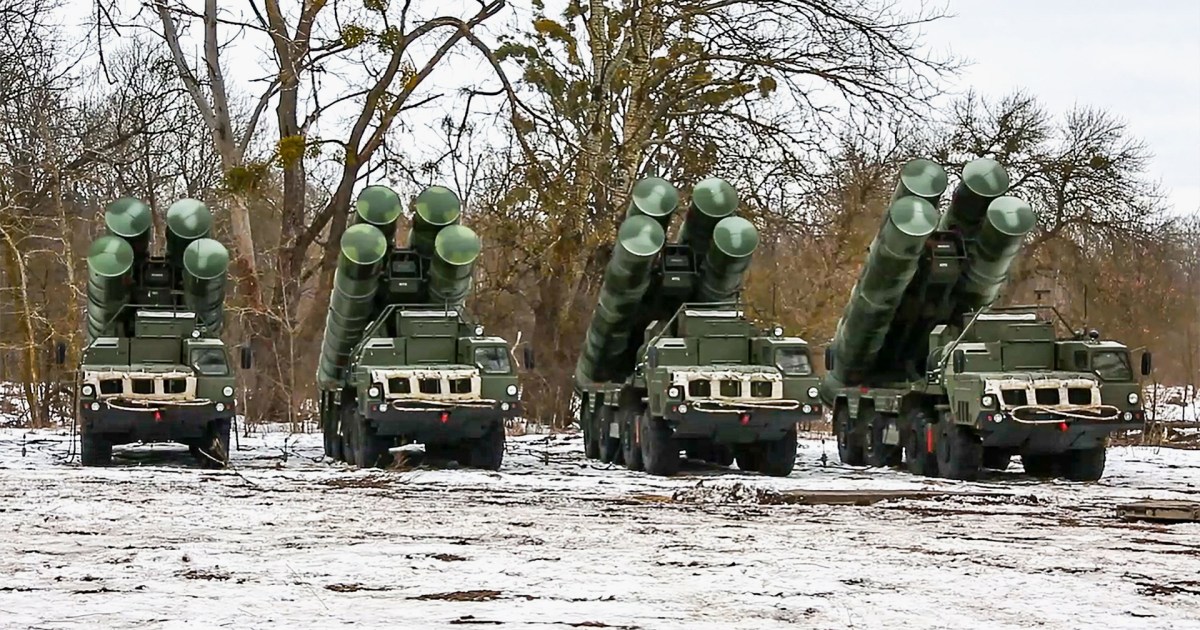Talks were held in Berlin on Thursday between the parties to the Normandy format to contain the Ukrainian crisis, while US warplanes landed in Poland, on the impact of Russian, Belarusian and Ukrainian maneuvers.
Germany said that the main objective of the four-way talks (Russia, Ukraine, France and Germany) is progress in the implementation of the Minsk agreements, especially in the political field and also with regard to security and humanitarian arrangements.
The Berlin meeting is the second after a similar meeting that was held in Paris two weeks ago.
For its part, Paris, which is co-sponsoring these talks with Berlin, expressed the hope that progress would be made, which would contribute to lowering the current tensions.
In this context, German Chancellor Olaf Scholz said Thursday that Russia should not underestimate the "unity" and "solidarity" of Europeans, while continuing intensive diplomatic efforts to contain the Ukrainian crisis.
"In this delicate situation for all of us, Russia should not underestimate the importance of our unity and determination as partners within the European Union and as allies in NATO," Schultz said, after consultations with the leaders of the three Baltic countries in Berlin, stressing that he takes "very seriously." With the concern of the three countries.
series of meetings
On Thursday, NATO Secretary General Jens Stoltenberg met British Prime Minister Boris Johnson on the tension between Russia and the West.
Stoltenberg said that the alliance is ready to respond to Russia's concerns and promote the principles of European security, describing the Russian military proliferation as a danger to Europe's security, but he stressed the need to search for political solutions, and that Moscow had to choose between diplomacy and sanctions.
For his part, British Prime Minister Boris Johnson - during his meeting with Stoltenberg in Brussels - described the situation as worrying in light of the heavy presence of Russian forces in the vicinity of Ukraine.
In this context, British Foreign Secretary Liz Truss and her Russian counterpart Vladimir Putin held talks in Moscow on the crisis, and said that Russia had two options: respecting Ukraine's sovereignty or escalation and its repercussions.
However, the Russian Foreign Minister likened his talks with his British counterpart to a dialogue of deafness, and expressed his belief that the West is using the escalation in the Ukrainian file to restore the collapsed popularity of Western politicians, as he described it.
American fighters
On the field level, Polish Defense Minister Mariusz Blaszczak said that US F-15 planes landed Thursday at a Polish air base, at a time when NATO is strengthening its military presence on its eastern flank amid tension over a confrontation between Ukraine and Russia. .
The planes arrived with the deployment of more American and British forces in Poland, which British Prime Minister Boris Johnson visited as an expression of solidarity.
In this regard, British Defense Secretary Ben Wallace said that London may send more troops to help support its allies in eastern Europe if necessary, after announcing the deployment of 350 soldiers in Poland on Monday.
maneuvers
In exchange for diplomatic activity and military mobilization, the Russian Defense Ministry announced the start of exercises for rapid deterrence forces from Russia and Belarus, which Ukraine also did by starting maneuvers throughout the country.
The US Chief of Staff, General Mark Milley, called his Belarusian counterpart, General Viktor Golevich, in order to avoid the possibility of "unaccounted for accidents."
For its part, the Ukrainian Foreign Ministry accused Russia of closing the Sea of Azov and the Kerch Strait, under the pretext of conducting military exercises.
However, Kremlin spokesman Dmitry Peskov said in statements that the exercises conducted by his country's naval forces in the Black Sea comply with international law and do not affect trade routes.
However, French Foreign Minister Jean-Yves Le Drian considered that the joint exercises between Russia and Belarus are huge, and are an indication of extreme violence.
In turn, British Defense Secretary Ben Wallace said that Russia plans to start a strategic nuclear exercise soon, and warned that the Kremlin's actions are going in the wrong direction despite efforts to reach a diplomatic solution.

